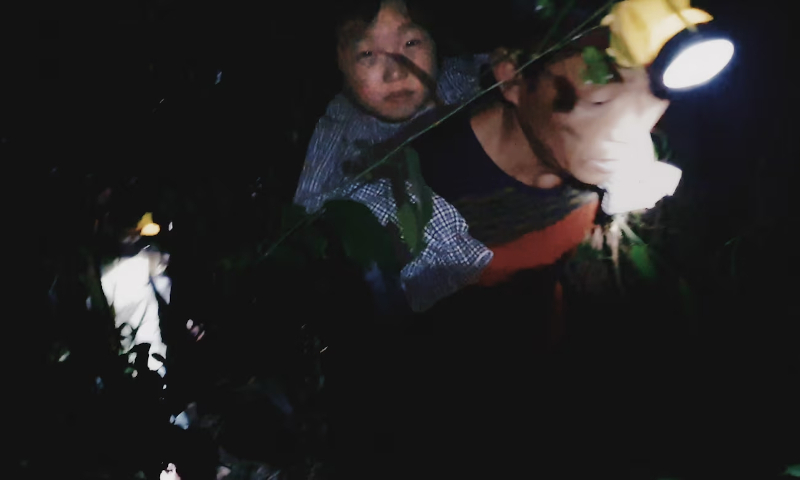Director – Madeleine Gavin – 2023 – US – Cert. 15 – 115m
*****
North Koreans flee their repressive country over the Chinese border and through several communist countries, where repatriation would mean imprisonment, torture and possibly death – heartstopping documentary is out in UK cinemas on Friday, October 27th
Whether you’re coming to the subject of North Korea cold or whether you already know a little about the subject from the documentary Camp 14: Total Control Zone (Marc Weise, 2012), the animated feature True North (Eiji Han Shimizu, 2020) or Korean War movies like Operation Chromite (John H. Lee, 2016) or Nambugan: North Korean Partisan In South Korea (Chung Ji-Young, 1990), this contemporary take on the North Korean refugee experience throws much fresh light on the subject.
To augment its twin central narratives – two entirely separate stories of North Koreans attempting to escape their country – director Gavin helpfully breaks them up with an intermittent primer on North Korea. Much of this comes from Hyeonseo Lee, who fled the country over 20 years ago and has subsequently talked about it in TED and other public speaking forums. Lee was the producer’s original intended subject for the film, which changed considerably as director Gavin began researching the subject.
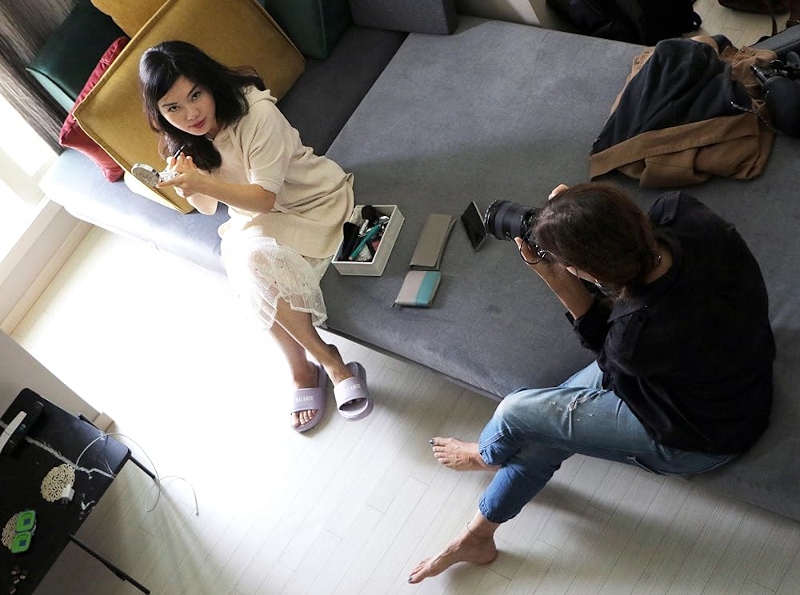
A brief recap. Following occupation by Japan (1910-1945), at the end of the second world war Korea was divided into North and South, with the North supported by Communist countries Russia and China and the South supported by the US. The two Korean halves developed on similar ideological lines to the countries looking after them, with the North’s leader Kim Il Sung unexpectedly invading most of the South in 1950 before being pushed back North by the South with considerable military help from the US. After that, the Korean War (1950-53) didn’t see either side gaining much ground, and an armistice was signed in 1953. This truce has remainder in place ever since, although technically the North and the South are still at war to this day, separated by a demilitarised zone. Today, that buffer is pretty much impassable by civilians.
Which means that for anyone wishing to leave North Korea today, the only way out is to cross the Yalu River into China. Hyeonseo grew up near this river, and the film starts off with it. She also talks about why anyone would want to leave Korea, reasonably characterised as the only Communist dynasty on the planet, with Kim Il Sung succeeded by son Kim Jong Il then grandson Kim Jong Un. The country didn’t do that badly while supported by the Soviet Union, but once that collapsed, so did the support and with it the North Korean economy, with Kim Jong Il pouring all resources into developing nuclear weaponry at the expense of everything, including the basic standard of living of ordinary North Koreans.
People in North Korea are taught that they’re better off than anywhere else in the world, with their Dear Leader looking out for their interests, but no communication is allowed with the outside world so they have to take this on trust. Ten rules for living are basically the Ten Commandments, but without any religious dimension or mention of God. There are severe punishments (imprisonment, torture, death camps) for acts as trivial as allowing the Dear Leader’s framed picture in your living room to accrue too much dust, and spying on fellow citizens and reporting them is a regular part of everyday life. Sanitation is basic: Hyeonseo talks about each household having to deliver a quota of poos to the state to be recycled as fertiliser. They are taught to hate and fear American-bastards (there is no other word for Americans). Required attendance of public executions is common, including for children. And so it goes on.
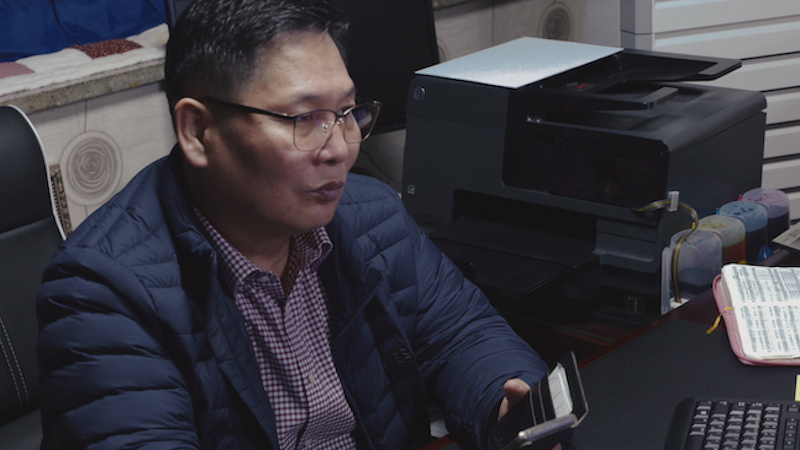
Pastor Kim, whose church is based in South Korean capital Seoul, fell in love some years ago with a North Korean and realised he would have to get her out to marry her, which process led him to discover networks of brokers who make money out of people by human trafficking for relatives or prostitution or organ sales, whatever makes them money. Today, he is a prominent member of what is known as the Underground Railroad for defectors, a system involving numerous brokers and others who work to get North Korean refugees out to the safety of the world outside the Communist block.
For this documentary, director Gavin focuses on two specific cases Pastor Kim worked on.
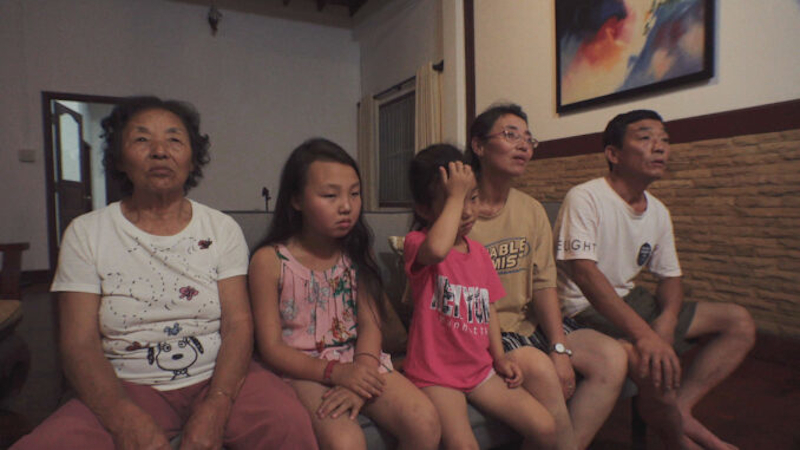
One case is the Ro family, unusual in that they are a group of five, much higher than the usual number: a couple, their two little girls and their eightysomething granny, discovered by Pastor Kim in the mountainous region on the Chinese side of the Yalu who must be taken through a number of Communist countries (China, Vietnam, Laos) to get to the non-Communist Thailand, from where access to South Korea is straightforward. The Vietnam-Laos section involves going through a mountainous jungle region to avoid the border and a final boat journey. Paster Kim plans to go with the family where he can, but he can’t go in to China as they know him and would arrest him if they caught him, and he can’t get off the boat into Thailand for similar reasons with that country.
Cameras are present to capture much of this journey, operated by brokers and others in trickier parts of the journey and by members of the film production team where it’s possible. Without knowing whether they’ll be successful, you’re watching real footage of a real life family getting out, a long and difficult process fraught with danger. It’s heart-stopping stuff.
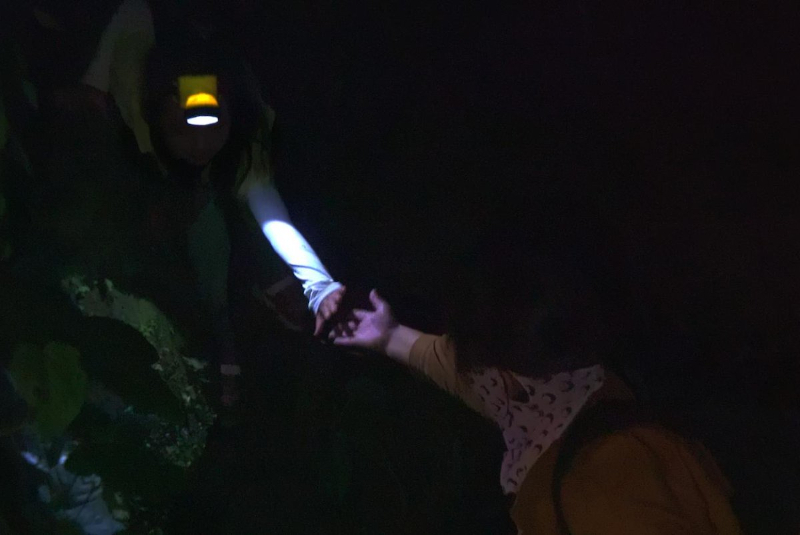
The second case, equally emotionally churning, concerns Soyeon, a woman who has successfully defected to South Korea alone, whose son gets out to China. She spends much time on the phone, with support and advice from Pastor Kim, trying to establish how her son’s escape attempt is going. It seems likely that he may not be trying to escape so much as to get his mum to come back to North Korea (which is never going to happen). Waiting for news is pretty agonising, and she has to part with large sums to brokers to get the information without knowing whether the news, if there is any, will be good or bad.
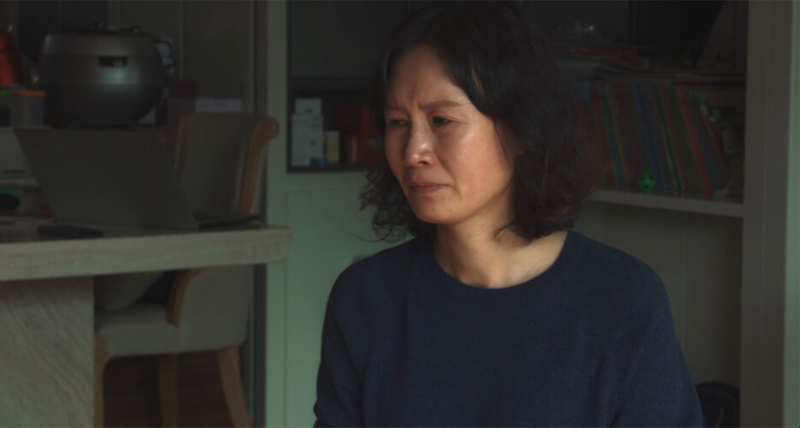
It’s apparently much more common for people to come out one at a time like Soyeon or her son rather than in a large group like the Ros.
The film further benefits from footage of life inside North Korea, smuggled out of the country by video activists at great personal risk to themselves. And as in Camp 14: Total Control Zone, animation is occasionally used to illustrate testimonies of life there.
Shot in 2019, it ends on an alarming note: defectors coming out of North Korea in 2020 are unaware of the COVID-19 pandemic, the wearing of masks and the lockdown practised by most countries (but not North Korea, where ordinary people were not told about the virus). Because of the international lockdown, Pastor Kim can do very little if anything for them at that time; certainly not help them get to Thailand and freedom. He’s clearly not happy about this, although the situation is scarcely his fault.
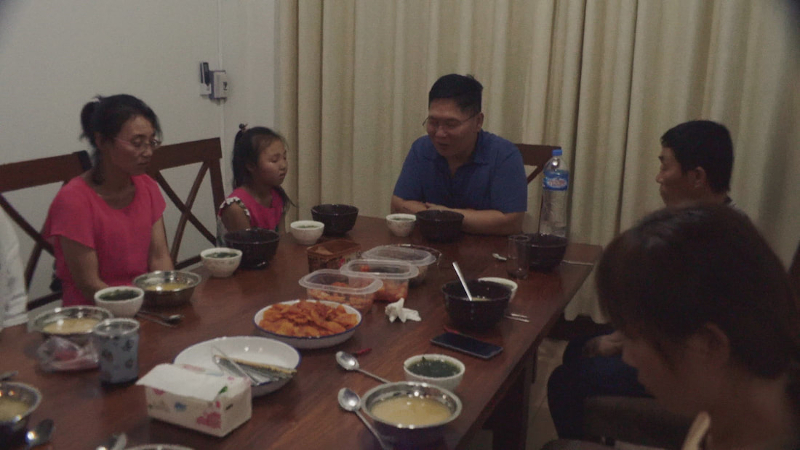
Ultimately, it’s hard to imagine people more needy than those attempting to flee North Korea, and hard to imagine a more appropriate display of Christianity than Pastor Kim’s work over decades to help get them out. This is a tough and challenging film to watch on many levels, yet it cries out to be seen. Much of it is edge of the seat stuff. All human life is here, from humanity at its very worst to its very best, and the film will break your heart.
Beyond Utopia is out in cinemas in the UK on Friday, October 27th.
Trailer:
